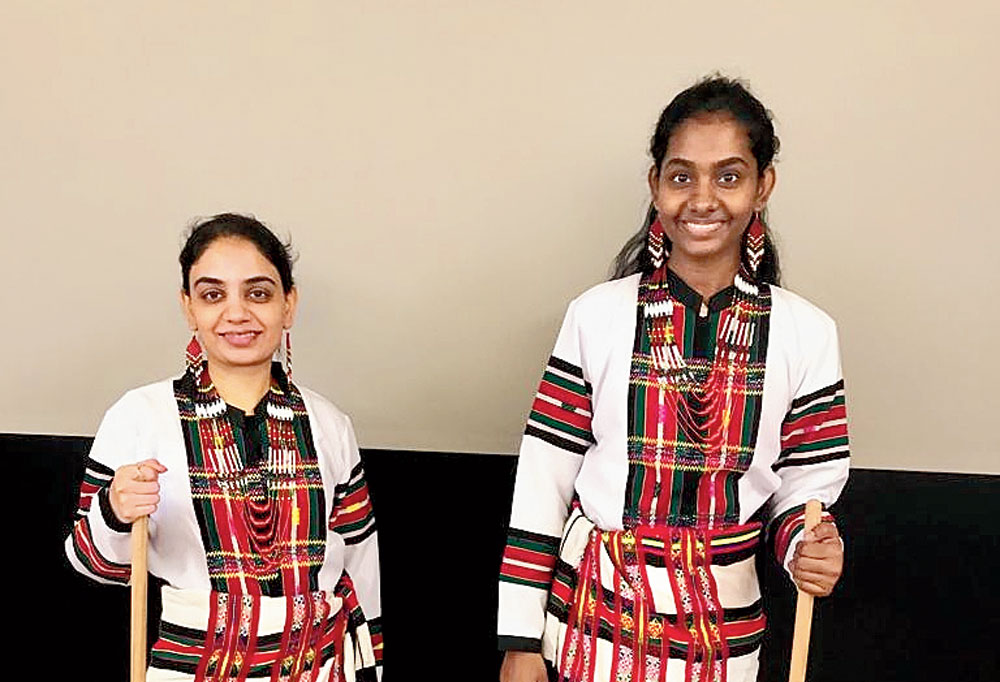The claps of bamboo staves of Mizoram’s cheraw and the beats of Garo dance of Meghalaya will reverberate around the Thames this weekend as the two dance forms of the Northeast will be staged for the first time at an event organised as part of International Dance Day celebrations in London on April 27.
The programme, which will be held at the seminar hall of the Church of Scientology, Blackfriars, aims to generate awareness on the Indian tribal and forest dweller communities. Besides the Northeast, pawara of Maharashtra and siddi of Karnataka will also be performed at the event.
Programme co-ordinator Ragasudha Vinjamuri, a veteran classical dancer and associate lecturer in the faculty of business and law at University of Sunderland, has trained eight local dancers for the past few months for the cheraw and Garo dance performances.
“The rich and diversified culture and heritage of the tribal communities in the Northeast has not been promoted at all. People, neither in India nor abroad, have much knowledge about the northeastern tribes. British audience and also the second and third generation of the Indians based in the UK are unaware of this. Through this event, we are trying to create awareness and appreciate the Indian tribal communities’ right to preserve and recognise their unique culture. It is an attempt to create an interface for audiences to consume and appreciate this knowledge on tribal dances,” said Vinjamuri, who has been researching about the tribal dances of India for the past six years.
With little exposure of the Northeast tribal culture in the UK, it was not easy for Vinjamuri and other organisers to make arrangements to create an ideal atmosphere of a Meghalaya or Mizoram village for the two-hour show at a central London venue.
“Our sources in Meghalaya and Mizoram recorded the local tribal music and sent it to us for our rehearsals. The dancers’ costumes were also shipped to London from the Northeast,” said Vinjamuri, adding that entry to the event, which will also includes discussions, PowerPoint presentation and speeches on the tribal Indian art and culture, is free.
The organisers presented hojagiri of Tripura and bagurumba of Assam at an event in the House of Commons on World Tourism Day in September 2017.
“Tribal art and culture is the most pristine and unadulterated form of expression. Their music and dance are inspired and in tune with nature. Unfortunately, owing to rapid urbanisation, we are impacting the tribal population. Hence, we have a responsibility to supplement and support them in ways possible. This event, dedicated to tribal communities, is a small effort to appreciate their art and culture. We hope the magnitude increases to do more in future,” said Sushil Rapatwar, a London-based project manager and co-organiser of the event.
The organisers are planning to showcase the tribal dance forms of Arunachal Pradesh and Nagaland in their next venture.

